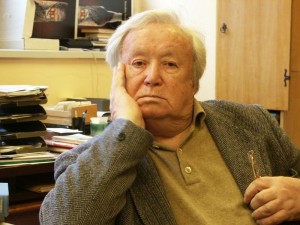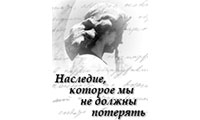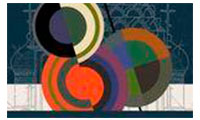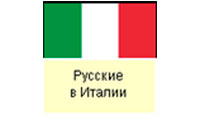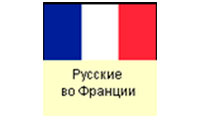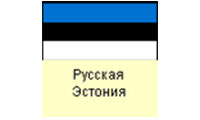Philosopher Larisa Chuhina
Svetlana Kovalchuk
Published in: Intelektuālās identitāres un vērtības. Filosofei Larisai Čuhinai - 100. - Dr. phil. Svetlanas Kovaļčukas zinātniskajā redakcijā. - Rīga: Latvijas Universitātes Filosofijas un socioloģija institūts, 2014.
The present book „Intellectual Identities and Values. Philosopher Larisa Chuhina – 100” (Riga, Institute of Philosophy and Sociology, University of Latviais, 2014) dedicated to the centenary of Larisa Chuhina – a well-known historian of philosophy of Latvia. For more than three decades – throughout the rather precarious period of the Latvian historical situation – L. Chuhina has had the opportunity to be engaged in scholarly research within a benevolent academic set-up, concentrating, as she did, on the perennial problems of philosophy. The unique cultural heritage at her disposal enabled her to subtly incorporate the intricacies of Western thought within the intellectual tradition of Latvia. L. Chuhina was the most knowledgable interpretator of Western philosophy of her generation.
The present collection consists of essays written by the colleagues who had worked together with Larisa Chuhina, and also by philosophers of the younger generation dealing wit the beloved themes of hers. The collection contains essays about the life and personality of L.Chuhina (authors Maija Kūle and Svetlana Kovaļčuka), peronal impressions and an analysis of the philosophical values she cherised. Ella Buceniece and Andris Hiršs are evaluating L. Chuhina`s work by dicussing some aspects of the history of ideas in Latvia. L.Chuhina has greatly contributed towards the investigation of the European thought in Latvia. Therefore M. Rubene, V. Vēvere, S. Krūmiņa-Koņkova have chosen to develop themes in consonance with the theoretical interests of Larisa Chuhina. So have Chuhina`s friends from the Institute of Philosophy of the Russian Academy of Sciences Tamara Kuzmina and Mihail Horjakov. L.Chuhina was particularly fond of the works of Max Scheler. This chimes in with the translation and commentaries undertaken by Igors Šuvājevs of Max Schelers` work Ordo amoris. Grigorijs Smirins , who had been an editor of L. Chuhina`s works, has contributed his reminiscences about Chuhina. Oksana Vilnīte and Gunta Plūksne have also shared their memories about philosopher Larisa Chuhina.
Larisa Chuhina (Larisa Aleksejevna Chuhina, née Stovbunik (24.09. 1913 – 23.03.2002) had graduated from Stefan Batory University in Vilno and Leningrad State University. She was professor emeritus , habilitaded doctor of philosophy (Dr. habil. phil.), senior researcher at the Institute of Philosophy and Sociology, Latvian Academy of Sciences. The themes of her scholarly interests included history of philosophy and the religious-philosophical anthropology. She had published monographs „Human Being and the World of Values. Critical Assessments” (Rīga, 1980), and „Human Being in Religious Philosophy” (Rīga, 1996), and a great number of scholarly articles.
Larisa Chuhin was born in the family of a teacher. She spent her childhood in Russia, but soon after her birth the family took an opportunity to emigrate to Poland, that had gained independence in November, 1918. After graduating from the Belorussian high-school in Vilno, Larisa enrolled in the Humanities Department of Stefan Batory University of Vilno. This event deserves notice, for it goes to explain the specific charm and authority of pani Larisa, as the colleagues respectfully called her. She had obtained excellent education and thus represented of a very illustrious philosophical tradition. Her studies at the University and subsequent work in the capacity of an assistant researcher at the Department of Philosopyhy caincided with the flourishing of the world-known Lvov- Warsaw school of philosophy.
The origin of the Lvov-Warsaw school is connected with the inaugural lecture of professor Kasimir Twardowsky (1866–1938), delivered in Galicia in autumn of 1895 at Lvov (then Lemberg) University. Twardovski had been a student of Austrian philosopher Franz Brentano (1883–1917) – the forerunner of the phenomenological and analytical traditions – and he established his own trend by way of synthesizing of several fields of knowledge – those of logics, ethics, aesthetics, art criticism, litereary criticism, history of sciences and theology. In many cases the specialists of these fields entertained different views as to the nature of philosopy. Twardowski`s synthesis was an outstanding example of the unifying effect of joint intellectual endeavour, providing for the novel development of the Polish academic life and producing a tradition which enabled the philosophical , mathematical sciences of Poland to obtain international recognition. It was the philosophical method and the specific linguistic discourse, rather than the contents of the particular investigations, that served to provide for the popularity of Lvov-Warsaw school of thought. It was not subservient to specific doctrine and thus served to unify scholars of various persuasions. The most illustrious contribution of the Lvov-Warsaw school is concerned with semiotics, logical semantics, non-traditional logic, psychology, sociology, ethics and the history of philosophy.
The matriculation register of student Larisa Stovbunik contains the names of professors who have contributed towards the popularity of the Lvov-Warsaw school. Here are some of them. Tadeusz Czežovski (1889–1981), who taught systematic logic and methodology, semiotics, history of logic and methodology. He lectured on the general methodology of sciences (the term „philosophy of sciences” was not in use for reasons of principle, because science was strictly distinguished from methodology and metascience, i.e, – from science about science) and held classes on general philosophy. Czežovski partook in the development of general metaethics, he attempted a normative approach to and a formal justification of ethics. Lvov- Warsaw school was distinguished by highly intellectual approach eschewing any kind of irrationalism. Czezovski viewed ethics as a kind of science capable of maximlly unifying of the manifold interests of the indivduals. It was a tipically individualistic ethics, justifying the attempts of any person to resist the preassures of group interests. This view is obviously connected with the general liberal political approach stemming from the tradition of classical European liberalism.
The lectures and classes on the ethics of individualism and axiology were conducted by Henryk Jozef Elzenberg (1887–1967) – a graduate of the Sorbonne University, specialist of ethics, aesthetics and axiology. Stefan Srebrny (1890–1962) was teaching Greek philosophy and Greek lyrics, lyrics of Sappho. Bohdan Zawadzki (1902–1966), a young teacher at that time, was reading psychology and held prctical seminars in psychology. Bogumil Jasinowski (1883–1969) – historian of sciences , theoretician of culture – held history of philosophy classes. He had published a book in Vilno in 1933 „The Eastern Christianity and Russia ”. The book was a controversial one and produced a mixed reaction among the critics and the reading public. In 1936 magazine „Putj ” (No 51) published a review of the book by the well-known Russian religious thinker Nikolai Losski (1870–1965). Incidentally, N.Losski was born in Dagda, now in Latvia.
The staff of the University did not teach a particular „philosophy” as a kind of comparmentalized system of views. Their main task had been to teach students to engage in philosophical enquiry. Thus the student Larisa Stovbunik had the unique opportunity to obtain solid knowledge and professional qualities that provided her with stamina and strength both intellectually and psychologically sustaining her throughout the subsequent decades of her life.
Larisa was particularly fond of the Greek philosophy, especially of the Stoics; she also cherished the poetry of Rilke amd liked Dostoevsky`s novels. This was complemented by her admiration of F. Nietzsche and her sympathies towards socialist ideas.She first came toRiga in the thirties when her friend, a well-to-do aristocratic lady offered her a carriage ride to Riga with the view of attending the well-known Otto Schwartz Cafe there. Both friends had also attended a lecture by Thoms Mann. presumably inWarsaw. Larisa was fond of remmembering these events and particularly impressed by the intellectual stature of the great German author and thinker. Her beloved novels by T. Mann were „ Doktor Faustus”, „ Lotte in Weimar”, and „The Magic Mountain”. In 1936 Larisa enjoyed a journey to Athens via Munich , she also took part in the Third Congress of Polish Philosophy in Jagiellonian University, Krakow.
On December 1, 1937 student Larisa Stovbunik presented a report at a student conference at Vilno University on the theme of „Love towards the Distant as the Bases of F. Nietzsche`s Ethics”. This provided for subsequent recognitin of her talent within the Faculty. On September 1, 1938 she started to work as an assitant at the Humanities Department of Vilno University. She passed the Master degree examinations and was expectantly looking forward to Master degree studies at the Sorbonne University.
The First World War had broght heavy losses and grief to her family. September 1, 1939 also struck an ominous note. On that day Fascist Germany launched an attack on Poland , an event that ended with the partition of Poland between Germany and the Soviet Union on September, 1939. Vilno was incorporated into Lithuania, while the rest of the territory became part of the „brotherly republics”. The beginning of Warld War II came with dramatic developments in Larisa`s fate. Her professional carrier was interrupted for more than a quarter of a century. Quite abruptly her life had became divided into „before” and „ after” of September 1, 1939. The Lvov-Warsaw philosophical school ceased to exist. The changes taking place in the University were immense. Some professors, e.g. Bohdan Zawadzki and Bogumil Jasinowski left their native land and elected to continue their carriers in USA an South America. In December, 1940 the post of an assistant was liquidated and Larisa had to return to Pruzhani, a place that had been incorporated into region of Brest. In March, 1941 she became a teacher of German at the local school. This period was followed by the unpleasant years of war and the most difficult task for a delicate woman as she was of serving in the capacity of a military interpreter – at first in the German, and later – in the Soviet army.
In 1945 Larisa Stovbuk met her future husband Vladimir Chuhin in Königsberg. In 1948 they moved to Riga where her usband worked as an engineer. Two children were born in the family – a son Sergei and daughter Tatiana. There was no possibility for Larisa Chuhina to work in her profession – the Vilno University education certificates were not recognized. At the age of 50 in 1962 Larisa Chuhina obtained an opportunity to enroll in Leningrad University. She speedily passed the necessary examinations and in 1964 received he University diploma, all the marks being excellent. The Faculty suggested that L. Chuhina contributes an article on Max Scheler`s phenomenoloical axiology for the transactions of the University. Max Scheler became her favourite subject of investigation during the subsequent years. Her very last article on Max Scheler was published in Moscow in 1994.
Three years after graduatng from the University, Larisa Chuhina presented a promotional dissertatin „Criticism of Max Scheler`s Phenomenological Axiology” for Candidate of Philosophy degree. The promotional process was so successful that one of the leading specialists in the field prof. Vasili Tugarinov proposed to the Higher Commission of Attestation to grant the full doctoral degree, by circumventing the Candidate`s stage. However, this suggestion was overlooked by the authorities.
Another peculiar detail from the 60-ies. Larisa always bore on the finger of her right hand a silver ring with a beuatiful dark amber stone. She called it a „philosopher`s ring” for it had been presented to her by a Polish philosopher Wladyslaw Tatarkiewics (1886–1980) – a representative of the Lvov-Warsaw school. He had been a specialist of ethics and history of philosophy, and an author of a book „Concerning Felicity and the Fullness of the Human Being”. Tatarkiewics had been teaching at Vilno University some time before Larisa enrolled there, but she knew him well and highly esteemed his work. They kept up a correspondence till the end of the 1970-ies.
In 1966 Larisa resumed work within a system of an academic institution. She became an assistant at the Philosophy Department of the Institute of History of the Latvian Academy of Sciences. In 1981 she became a researcher at the newly founded Institute of Philosophy and Law, where she kept the post till the end of 1990. In much the same manner as the well-known Russian philosopher Alexei Losev had found refuge from the dominancy of the Marxist-Leninist dogmas within the precincts of the ethical thought of antiquity, so Larisa Chuhina found safe haven in the religious-philosophical anthropology, in ethics , in the history of Western European thought. She conducted extensive research on the historical developments of the Latvian thought and also in the field of axiology.
The colleagues at the Institute cherish memories about Larisa Chuhina. She was a very pleasant, elegant woman, a wonderful conversationalist, obtaining of an impressive amount of knowledge about philosophy, literature and history of culture. Some people could wonder at her passion during philosophical controversies. Larisa was very attentive towards the researchers of the younger generation, she highly esteemed their talents , perseverance, the collegiality of professional relations. Larisa was a very demanding person – both with regard to herself and to other people. She highly valued interpersonal relations , the ability to preserve a dignified posture in every situation. One person whom Larisa Chuhina deeply respected for such qualities was the director of the Institute of Philosophy and Law Academician Valentīns Šteinbergs (1918–2011).
At the beginning of 1980-ies L. Chuhina`s monograph „ Human Being and the World of Values in Religious Philosophy” (second edition 1991) was published. This work served as a bases for her doctoral dissertation. Making full use of her knowledge of the modern languages Larisa Chuhina developed a specific style of essays dealing with some of the most illustrious philosophical and religious thinkers of the Western culture. These were Aurelius Augustinus, Thomas Aquinas, Blaise Pascal, Soren Kierkegaard Fiodor Dostoievski, Karl Barth, Jackues Maritain, Martin Buber, Gabriel Marcel, Karl Rahner and Jēkabs Osis, Garlībs Merķelis, Johans Bēzeke. Her main philosophical motif throuhout these interpretations was the problem of the Human Being, or – to use Pascal`s paradoxical image – the „thinking reed”. Larisa taught her younger colleagues and anybody, who was willing to learn the comprehension of the philosophical discourse, the appreciation of linguistic nuances, the attention to the architectonics and the coherence of the text.
Every person enters into an autumnal phase of his/her life. Larisa reached her professional maturity phase with the graduation from Leningrad University and with the defence of the doctoral dissertation .The promotion to the doctoral status took place in November, 1984 at the Institute of Philosophy in Mosow in the presence of her colleagues professors Neli Motroshilova, Vasili Sokolov, Tamara Kuzmina, Boris Grigorian. In the subsequent years by overcoming the problems of failing eyesight Larisa Chuhina actively published articles in a number of scholarly journals.
L. Chuhina was of Russian extraction and had Orthodox background; yet she did not belong to any church denomination and was not primarily interested in religious thinkers, with the exceptionof F. Dostoievski. Her concern with the Russian religious thought was awakened comparatively late in her life, at the beginning of the 1990-ies when she became involved in the writing of a text book on philosophy for high-school students. She contributed evaluations on Vladimir Soloviev, Nikolai Berdiaev, Semion Frank, Pavel Florensky. The book „Human Being in Religious Philosophy” was issued in 1996 by „Zvaigzne ”publishers in Riga.
Before leaving for the world of eternity, concerning the real existence of which she witheld judgement, Larisa suffered fom prolonged illness; at times she did not recognize the visitors due to failing eyesight, but she very much cherished the talks with the faithful friend of hers Professor Oksana Vilnīte,who used to visit her in the morning hours; she was fond of reciting poetry, especially Rilke and his poem „The Autumn”.
Tanslated J.Veiš.


